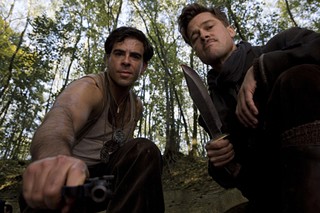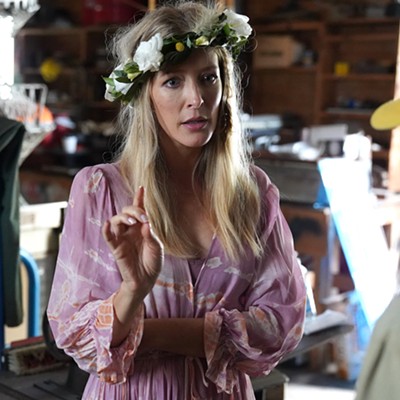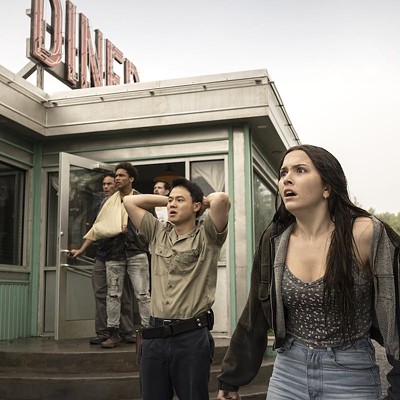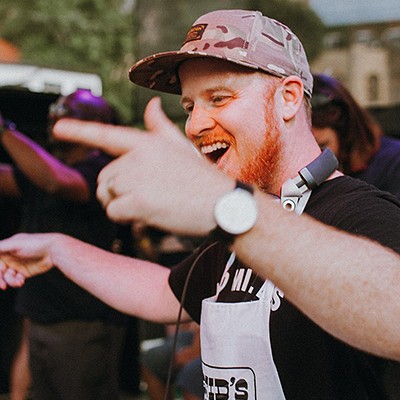When you talk to Eli Roth, there's a recurring motif in the conversation: he keeps it personal and unapologetic. Roth is on the phone from Vancouver, where he's talking up Quentin Tarantino's Inglourious Basterds, in which he plays Donnie "The Bear Jew" Donowitz. He lets the dialogue flit to-and-fro, from his own filmmaking, his relationship with Tarantino, to his inspiration for Donnie, who knocks in Nazi skulls with a baseball bat like he's knocking one out of the park.
Roth originally made his name as the writer-director of the zesty horror pictures Cabin Fever, Hostel and Hostel: Part II---films that boast uncompromising gore along with an inescapable personal quality. While Roth's films certainly can't be mistaken as emo-indie, there's a sense while watching, say, Cabin Fever, that you are getting an intimate tour of the things that make Roth laugh, gasp and cringe. Roth explains that there was a personal impetus when forming Donnie as well.
"This for me was very personal for several reasons," Roth says. "For one, I had relatives that were killed in the Holocaust." (Roth's grandparents of Jewish Russian-Polish stock made it to America, but distant relatives perished.) "And I grew up with fantasies of killing Nazis, specifically killing Hitler and shooting him in the face with a machine gun." Spurred on by WWII flicks like The Dirty Dozen and chilling childhood reminders of the Holocaust's horrors, Roth also hates bad Boston accents in movies: he, like his character Donnie, is from Boston. "It tortures me, you really have to be from there to do it, so I wanted to represent specifically the Boston Jews," he says. (Roth says Bostonians call The Departed, The Re-taaaah-ted. "Mark Wahlberg can do it, Damon can do it and no one else really has it.")
Further, Roth says, "I too, like many Jews, was just tired of seeing the Jews portrayed as wimps. Enough already. Look, I love Woody Allen, but I think that there's room for other types of Jews. I thought that this is an opportunity to help redefine Jewish masculinity in film."
So it was with personal and impassioned feelings that Roth took on a second job in Basterds, helming Nation's Pride, the Nazi propaganda film within this Jewish revenge picture that cues up some of the turning points of the third act. "Pride has a very specific purpose in the story in that it has to impress Hitler as the greatest Nazi propaganda movie ever made. I knew it wasn't a stand-alone piece. I knew that it would only be seen in the context of Hitler watching it, so the more ridiculous it was, the more it would make Hitler look ridiculous and self-aggrandizing."
During shooting, Roth would tell the crew: "More swastikas, more swastikas! And they'd say, 'This is Germany, this is so illegal! We can't do this!' And I'd say, 'The hell we can't! This is a Nazi propaganda film! This is what they did. This is what got lots of relatives killed and I'm not going to show a watered-down version of that.'"
This unbending nature also gets at the root of Roth's continued collaboration with Tarantino: "I think Quentin and I are very unapologetic about what we do. We write characters that aren't very politically correct, but that are very honest to who the characters are. We care about making genre films great."















